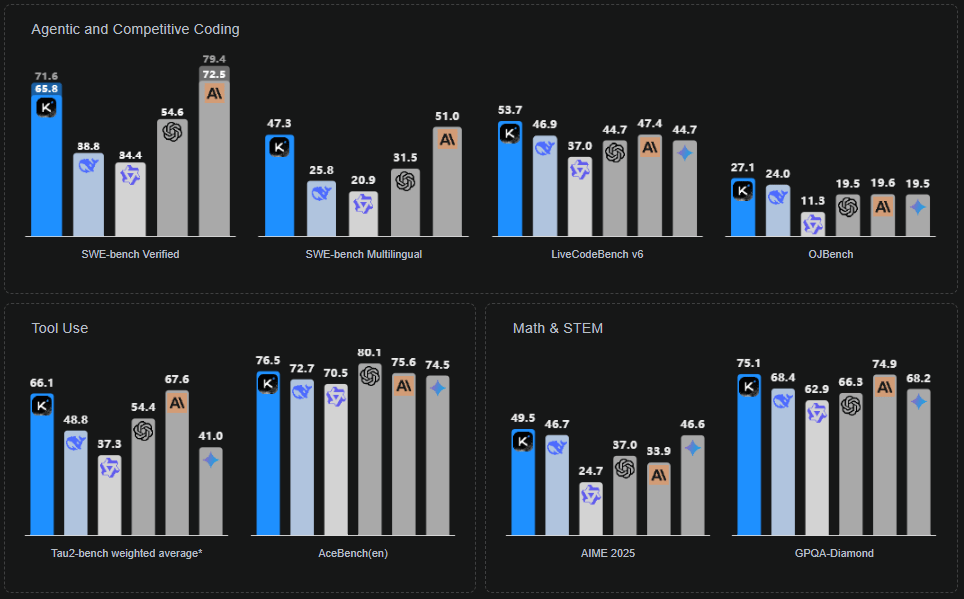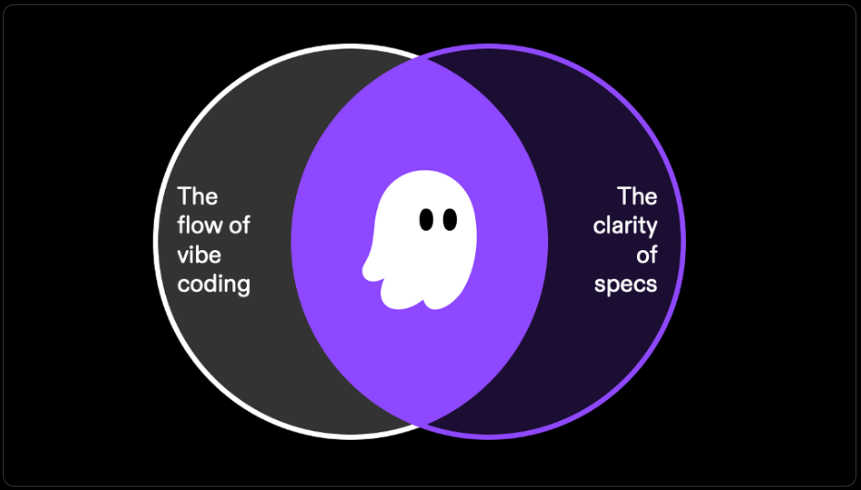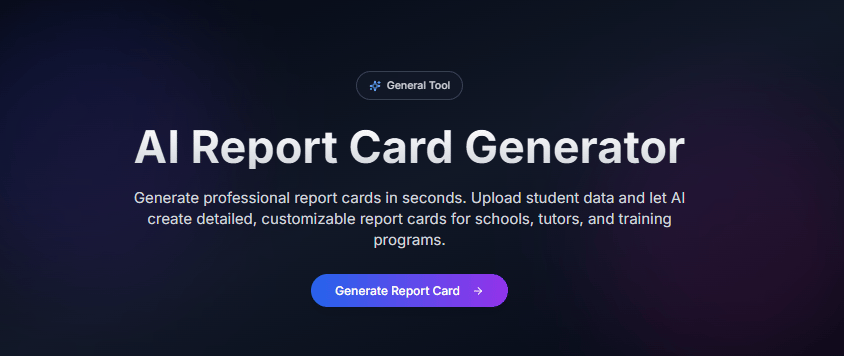- AI Report by Explainx
- Posts
- Open Source Kimi K2 Beats GPT-4.1👊
Open Source Kimi K2 Beats GPT-4.1👊
Kimi K2 launches as an open-source agentic AI, Kiro redefines coding with spec-driven dev, and Claude now connects to tools like Notion, Figma & Stripe for smarter workflows.
This month marks a major leap forward in agentic AI, developer tooling, and collaborative intelligence. Three standout innovations are reshaping how we build, code, and create with artificial intelligence:
Moonshot AI has unveiled Kimi K2, a trillion-parameter open-source Mixture-of-Experts model optimized for autonomous problem-solving, coding, and tool usage—designed for those seeking a powerful, transparent alternative to proprietary LLMs.
Amazon’s new IDE, Kiro, is redefining software development with spec-driven workflows, integrating AI deeply into the coding process with traceable decisions, design artifacts, and automated quality enforcement—bridging the gap between quick prototyping and production-grade systems.
Claude by Anthropic now connects directly with your favorite tools like Notion, Canva, Figma, and Stripe, transforming from a smart assistant into a fully integrated AI collaborator, streamlining your design, dev, and operations workflows.
Whether you're building autonomous agents, designing full-stack apps, or collaborating across teams—these releases are pushing the boundaries of what’s possible with AI.
Kimi K2: Open-Source Agentic AI Model

Kimi K2 is an open-source, state-of-the-art Mixture-of-Experts (MoE) large language model developed by Moonshot AI, featuring 32 billion activated parameters out of a total of 1 trillion, and specifically optimized for agentic intelligence—meaning it can autonomously use tools, write and execute code, and solve complex, multi-step tasks without human intervention. Available in two variants—Kimi-K2-Base for custom fine-tuning and Kimi-K2-Instruct for general-purpose chat and agentic workflows—Kimi K2 excels in coding, reasoning, and long-context understanding, and is trained on 15.5 trillion tokens using novel optimization techniques for stability and efficiency. The model is designed to be highly efficient, cost-effective, and accessible for both researchers and developers, supporting advanced applications like interactive data analysis, simulations, and software development, and is positioned as a transparent, collaborative alternative to proprietary AI systems.
Kiro: AI IDE for Spec-Driven Development

Kiro is a newly launched agentic IDE from AWS that reimagines AI-assisted software development by guiding developers from prototype to production with a focus on clarity, rigor, and maintainability. Unlike typical "vibe coding" tools that generate quick code with little documentation, Kiro introduces a spec-driven workflow: it turns prompts into detailed requirements and technical specs, generates user stories with acceptance criteria, and produces design artifacts like data flow diagrams and TypeScript interfaces, ensuring every decision is documented and traceable. Its unique "hooks" automate background tasks—such as updating tests or documentation on file changes—enforcing standards and catching issues before code ships. Built on Code OSS and compatible with VS Code plugins, Kiro supports agentic chat, Model Context Protocol (MCP) for tool integration, and works across Mac, Windows, and Linux. Currently in free preview, Kiro aims to solve core challenges in software engineering by bridging the gap between rapid prototyping and robust, production-ready applications, making it easier for teams to maintain quality, align on requirements, and preserve institutional knowledge.
Claude: Connect Your Tools for Smarter AI Collaboration

Claude now features a new directory of tools and connectors, allowing users to seamlessly link Claude to popular remote services like Notion, Canva, and Stripe, as well as local desktop apps such as Figma, Socket, and Prisma. By connecting Claude to your everyday tools, it gains direct access to your work context—enabling more relevant, actionable responses and transforming it from a basic assistant into a true AI collaborator. For example, instead of manually providing context, you can ask Claude to generate release notes from your Linear tickets or turn creative briefs into Canva posts, streamlining workflows across product management, design, and payments. The tool directory is available to all Claude users on web and desktop, with connectors to remote apps reserved for paid plans, making it easy to enhance productivity and integrate AI directly into your existing workflows.
Generate professional report cards in seconds with the AI Report Card Generator. Just upload student data and let AI create detailed, personalized reports with custom templates and smart comments. Perfect for schools, tutors, and training centers—fast, accurate, and effortless.
Generate Now 👉️ Link

Top AI Products from this week
OpenArt AI - OpenArt gives you the power to turn any idea into a captivating visual story, within minutes. Whether you're creating viral social media posts, explaining a concept, or building brand content, OpenArt is where ideas become visual stories. Make wonders with OpenArt.
Dualite - Build and ship applications while all your data stays on your local browser.
Vogent Voicelab - Vogent Voicelab is a platform for optimized inference of top open-source voice models, like Sesame's CSM-1B, Dia, Chatterbox, and more. Voicelab optimizes and post-trains these models to generate consistently high-quality speech ultra-fast.
ai_licia - ai_licia is your perfect co-host to help you with your community. ai_licia is there to engage, bring entertainment and help you build your community thanks to her customisable unique personalities, her cross platform memory, her ability to hear, write and speak.
Grow On Reddit - AI-powered tool that finds niche Reddit audiences and creates authentic posts & comments to promote your brand safely. Access 100M+ daily users across 100K+ communities with smart scheduling and real-time analytics.
This week in AI
Windsurf Leaders Join Google - OpenAI’s $3B Windsurf deal collapsed; Google hired Windsurf’s CEO and top talent, paying $2.4B for tech licenses. Windsurf continues independently.
Async Robot Inference - Asynchronous inference decouples action prediction from execution, eliminating idle lags and doubling task speed, making robots more adaptive and responsive
RL’s GPT-3 Moment Nears - Massive-scale, diverse training and “replication training” could soon give RL models task-agnostic, few-shot abilities—unlocking robust, general performance.
RL’s GPT-3 Moment Nears - Massive-scale, diverse training and “replication training” could soon give RL models task-agnostic, few-shot abilities—unlocking robust, general performance.
Google Adds Image-to-Video in Veo 3 - Google’s Veo 3 now turns photos into 8-second videos with sound via the Gemini app, available to AI Pro/Ultra users in 150+ countries, with watermarking for safety.
Paper of The Day
BlueGlass is an open-source framework designed to advance AI safety by integrating and composing diverse safety tools within a unified infrastructure. It enables comprehensive safety analysis by supporting the inspection, monitoring, and manipulation of model internals and outputs. Demonstrated on vision-language models for object detection, BlueGlass uncovers model performance trade-offs, interpretable concepts, and shared learning dynamics, providing foundational infrastructure and empirical insights to build more robust and reliable AI systems.
To read the whole paper, click here: Full Paper